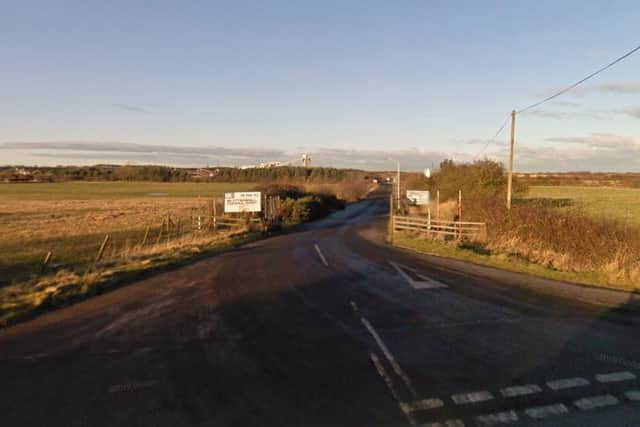Councillors advised to approve controversial rural construction …
This is despite 11 public objections to the proposal and reports still outstanding on the environmental impact and potential flood risks of the proposal.
The site, known as Butterwell Disposal Point, is located along the East Coast Mainline railway line near Linton Colliery, and served as a deposit point for coal and other minerals between 1976 and 2016.
Construction and plant services company N. B. Clark, based in Morpeth, wants to deliver aggregates, namely sand, gravel, and limestone, to the site using the existing branch railway line, and then distribute them around Northumberland[1] by road.

 Butterwell Disposal Point, near Linton Colliery, served as a deposit point for coal and other minerals between 1976 and 2016.
Butterwell Disposal Point, near Linton Colliery, served as a deposit point for coal and other minerals between 1976 and 2016.
The planning application also includes plans for a recycling plant to process construction and demolition waste products back into aggregates.
N. B. Clark is also seeking outline planning permission, an earlier stage of the planning process, to build offices, a workshop, and a security office on the site.
Initial plans to build a site warden’s bungalow on the site were included in the initial application, but have now been removed.
Objections raised include the impact on air quality, an interruption of the area’s tranquillity, a lack of consultation with locals, and increased traffic.
In its written objection, Longhirst Parish Council said: “Longhirst is a quiet, rural area and residents believe that this operation if approved will create noise, dust, and a significant increase in traffic on unsuitable country roads.
“Residents have just got over the lengthy opencast operations, and were hoping for the site and the area generally to return to agricultural use.”
The parish council said it can “understand why the application is likely to be approved,” and requested a series of conditions are put on the development if it is allowed to go ahead.
In its own response, Ellington and Linton Parish Council expressed concern at increased traffic and the potential for the safety of vulnerable road users like cyclists, walkers, and horse-riders to be compromised by frequent larger lorry journeys.
It added: “Whilst we are pleased to hear that no water for the operations will be taken from natural sources on the site we are, however, very concerned at the possibility of discharges, even accidentally, into the River Lyne from the settling ponds or run-off from the site.”
But, pending a response from the Environment Agency and a flood risk report that do not raise any serious concerns, council planning officers are recommending the planning application gets approval.
The officer’s report said: “The proposal is not consistent with the settlement strategy for economic development proposals in the countryside,” but it noted that “planning policies cannot cover every possible scenario.”
The report added: “The application will present an opportunity for employment in the countryside in an area accessible by rail and road.
“On balance it is acknowledged the proposal represents a minor departure to [planning policy], however, the proposal seeks to reuse previously-developed land and a rail head, and will not result in adverse environmental, highways or residential amenity impacts.”
As the proposal involves waste management, Northumberland County Council’s strategic planning committee will make the final decision, with councillors voting at a meeting on Tuesday, June 6.
References
- ^ Northumberland (www.northumberlandgazette.co.uk)